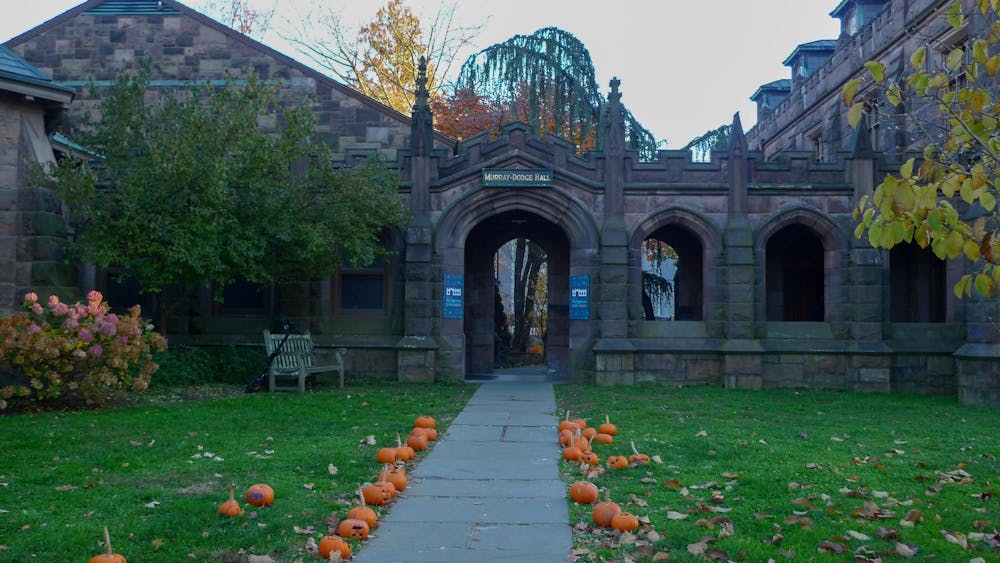There is no doubt that the United States values religious liberty: Freedom from government-established religion is, after all, a key right in our Constitution’s First Amendment. American universities like Princeton, which often present themselves as bastions of free thought and intellectual exploration, play a pivotal role in safeguarding this fundamental right. The relationship between religious beliefs and higher education is a multifaceted issue, encompassing the protection of students’ and faculty members’ religious expression, the accommodation of diverse faiths, and the separation of church and state within the academic realm.
An exploration of the legal precedents applicable to public universities enables us to gain a deeper understanding of the delicate balance that Princeton must strike between religious freedom and secular values. Such an analysis also reveals the University’s lack of transparency regarding how the allocation of alumni and University funds towards religious organizations prevents the student body from fully knowing if they are being treated equitably. Without such crucial knowledge, Princeton’s student body is unable to accurately assess if their freedom of religion, specifically their protection from the government giving preferential treatment to one religion at the expense of others, is being upheld.
To determine if Princeton is doing enough to uphold this religious freedom, we must first understand Princeton’s individual relationship to the First Amendment. The Free Exercise Clause of the First Amendment prohibits religious discrimination in public universities. For instance, in Rosenberger v. Rector and Visitors of the University of Virginia, the Supreme Court ruled that the University of Virginia’s denial of funding to a Christian student magazine, while providing funding to secular student publications, amounted to unconstitutional viewpoint discrimination and set the precedent that public universities must maintain viewpoint neutrality when allocating funds or resources to student organizations.
Although Princeton is a private university, its corporate status as a nonsectarian — or secular — institution does not grant it the “ecclesiastical exception” possessed by other private, religiously-affiliated institutions which allows them to ignore certain non-discrimination laws on the federal and state level. So while not bound by the First Amendment as public universities are, Princeton is still held accountable by legislation such as the Civil Rights Act and Title IX, applicable to the University due to its acceptance of federal funding.
According to its own Non-Discrimination Statement, Princeton cannot discriminate on the basis of religion. In relation to student groups, this means Princeton must facilitate the representation of diverse belief systems in a manner that does not give preference to one organization over another. It seems that Princeton is fulfilling its mission: The Office of Religious Life (ORL) represents major world belief systems on campus, and, in tandem with the Fred Fox Fund, doles out grants that “help registered student organizations present religious and cultural programming on campus,” ostensibly extending the reach of an already equitable university religious environment. However, it’s the exact nature of that funding where things get murky.
The issue lies in that we cannot see if Princeton is actually distributing funds equitably or the degree of influence they wield on the quality of religious life. We can observe that student-run religious organizations have ample funding primarily sourced from large contributions, a portion of which may come directly from the University or through their allocation of alumni funds. The presence and potential influence of such large financial transactions emphasizes the need for more financial clarity from the University on those transactions’ exact role in the University’s religious life. But Princeton itself doesn’t provide any accessible data about how much of their alumni donations and school funding goes towards on-campus religious life and to which organizations.
By openly disclosing information about alumni donations and funding allocations, Princeton can demonstrate its commitment to accommodating a broad range of religious perspectives and supporting the spiritual well-being of its students. This ensures that all groups have access to the necessary resources to facilitate their activities and provide services to their members. While it is easy to simply trust that Princeton is doing the right thing, further financial clarity and honesty would ensure accountability.
Transparency about alumni donations to student-run religious organizations at Princeton University is essential for promoting fairness, inclusivity, accountability, and ethical compliance. It aligns with the values of an institution that cherishes liberty and ensures that all students have equal access to resources and support, regardless of their religious affiliations. Ultimately, such clarity can contribute to a more harmonious and supportive campus community.

Christie Davis is a first-year contributing columnist for the ‘Prince.’ She can be reached at cd6404@princeton.edu.









